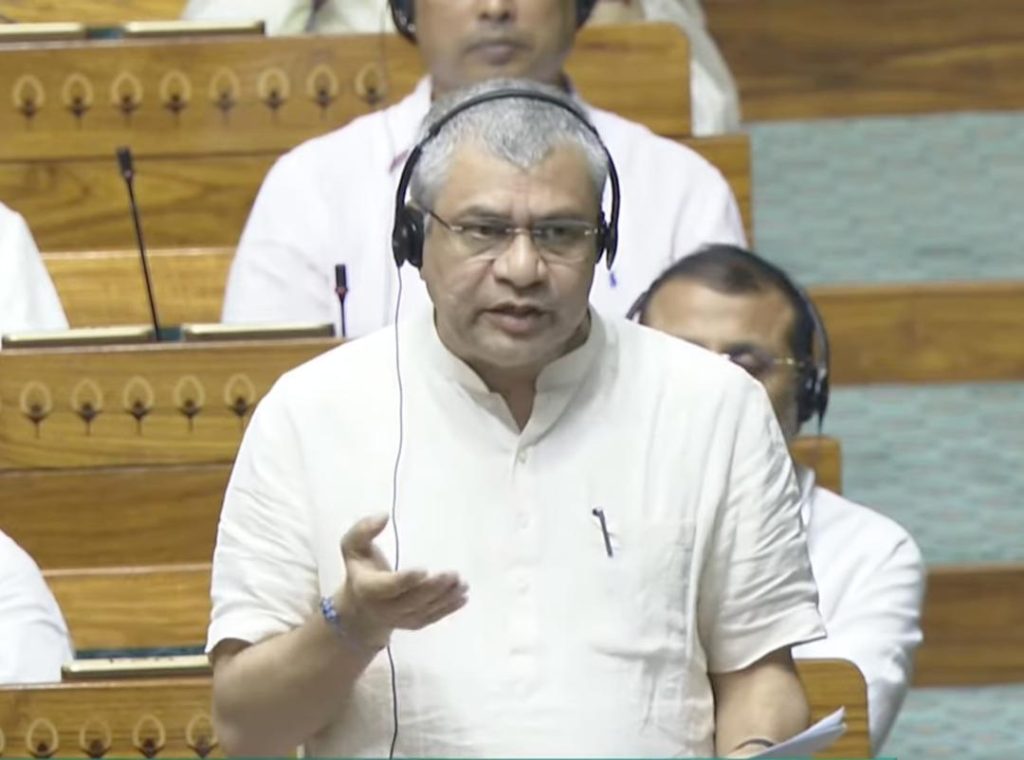
Between our revenue & middle-class families, PM chose families: Vaishnaw on Gaming Bill
In a recent move, the Indian government has taken a significant step towards regulating the online gaming industry in the country. The Promotion and Regulation of Online Gaming Bill 2025 was introduced in the Lok Sabha by Union Minister Ashwini Vaishnaw, and it has sparked a heated debate among lawmakers, experts, and the general public.
According to Vaishnaw, the bill has been introduced to “save the society from bad elements” and to ensure that the country’s youth are not lured into real-money and gambling games. The bill aims to regulate the online gaming industry, which has grown exponentially in recent years, and to prevent the spread of illegal activities such as gambling and money laundering.
However, what caught many off guard was Vaishnaw’s statement that Prime Minister Narendra Modi always chooses middle-class families when choosing between them and government’s revenue. This statement has sparked a controversy, with many interpreting it as a clear indication that the government is prioritizing the interests of the middle class over its revenue.
The bill, which was passed on Wednesday, proposes a blanket ban on real-money and gambling games, including poker, rummy, and fantasy sports. The government has argued that these games are a threat to the country’s youth and can lead to addiction and financial ruin.
Vaishnaw, while introducing the bill, emphasized that the government’s primary concern is the welfare of the people, particularly the middle class. He stated that the bill is aimed at protecting the society from the “bad elements” that are exploiting the online gaming industry for their own gain.
The government’s move has been welcomed by many who have been calling for regulations on the online gaming industry. There have been concerns about the lack of regulation and the potential risks associated with online gaming, including addiction, financial loss, and the spread of illegal activities.
However, the bill has also received criticism from some quarters, who have argued that it is an overreach of the government’s powers and that it will stifle innovation and entrepreneurship in the online gaming industry. Some have also argued that the bill is a veiled attempt to ban online games that are popular among the youth, such as poker and rummy.
The Indian online gaming industry has grown significantly in recent years, with many startups and entrepreneurs investing heavily in the sector. The industry has created thousands of jobs and has contributed significantly to the country’s GDP. However, the lack of regulation has also led to concerns about the spread of illegal activities and the exploitation of players.
The Promotion and Regulation of Online Gaming Bill 2025 is a step in the right direction, as it aims to regulate the industry and prevent the spread of illegal activities. However, the bill also raises concerns about the government’s priorities and its approach to regulating the industry.
Vaishnaw’s statement about PM Modi choosing middle-class families over government revenue has sparked a debate about the government’s priorities. While the government has argued that its primary concern is the welfare of the people, many have interpreted the statement as a clear indication that the government is prioritizing the interests of the middle class over its revenue.
The government’s move has also raised questions about the impact of the bill on the economy. The online gaming industry is a significant contributor to the country’s GDP, and any regulations that stifle innovation and entrepreneurship could have a negative impact on the economy.
In conclusion, the Promotion and Regulation of Online Gaming Bill 2025 is a significant step towards regulating the online gaming industry in India. While the bill aims to protect the society from the “bad elements” that are exploiting the industry, it also raises concerns about the government’s priorities and its approach to regulating the industry.
As the debate continues, it is clear that the government’s move has sparked a heated discussion about the role of the state in regulating the online gaming industry. While some have welcomed the bill as a step towards protecting the society, others have criticized it as an overreach of the government’s powers and a veiled attempt to ban popular online games.
Source: https://youtu.be/qOIqYpwYOi8






